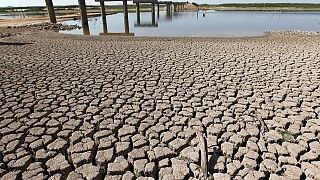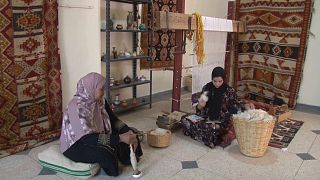Morocco
Mimoun Nadori kneels to dip his hand into the river and taste the water next to groves where his family has long grown fruits and vegetables on their northern Morocco farms.
He grimaces. It’s salty. But it didn’t used to be this way.
“Everything was green,” he remembers. “We drank from the river and washed with the river. We made a life with it.”
But less rainfall and more damming and pumping upstream has left less water flowing through Morocco’s Moulouya River and threatened the livelihoods of farmers like Nadori.
Where the river once flowed from the mountains into the Mediterranean, it now sits stagnant, allowing seawater to creep inland and turning water from a source of life to a deadly poison.
Nadori started importing water for the on-site chicken coop he manages after his cows accustomed to drinking from the river died. He knew neither that the water was brackish nor that they were feeding from it until they wound up dead.
Overuse of the river has also put new pressures on the reserves of water that lie beneath the ground as Moroccan farmers like Nadori — as well as those on the other side of the nearby Algerian border — dig more wells to compensate for the loss of their former supply.
“We won’t lie and say the reason is only humans or drought, it’s both,” he said. “We don’t know how to use water and we waste a lot of water.”











01:15
Morocco says 2024 was the hottest year with temperatures reaching 47.7 degrees
02:08
Gunman attack in north-central Nigeria: death toll climbs to 150
11:14
Rwanda Walks Away: what’s behind the Central Africa rift? [Business Africa]
Go to video
Global Heat Report: Climate change fuels silent killer
Go to video
World Bee Day: bees under threat, but solutions exist, report finds
Go to video
Indonesia hosts prestigious specialty coffee event for first time